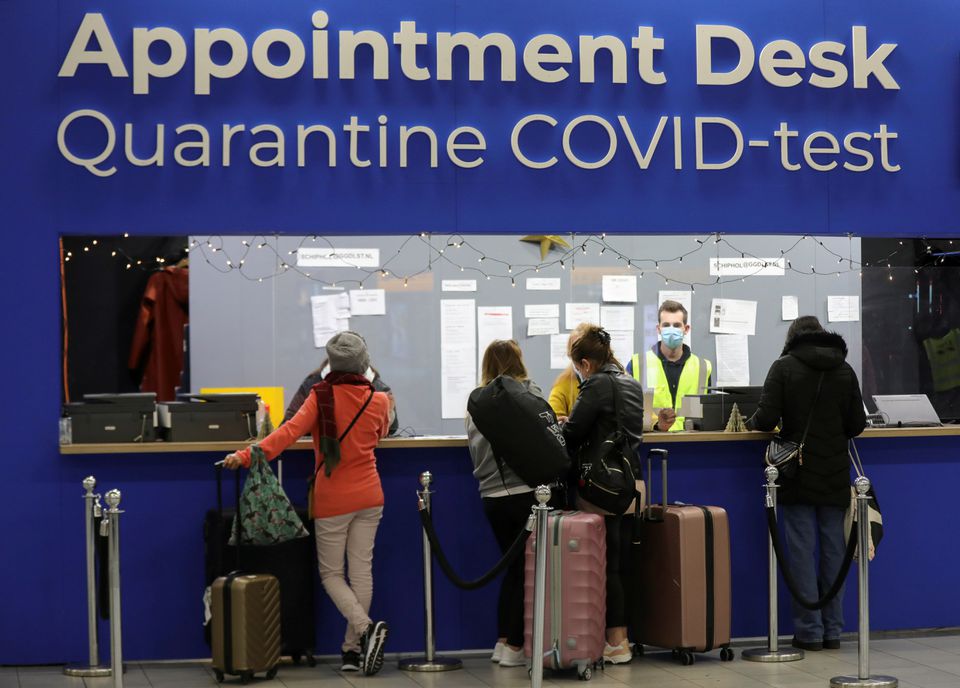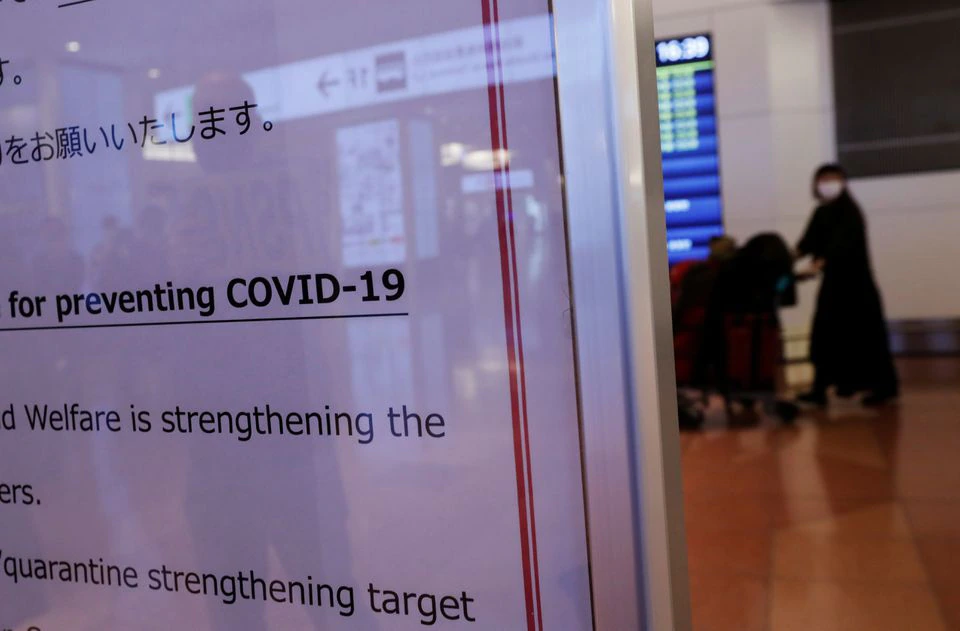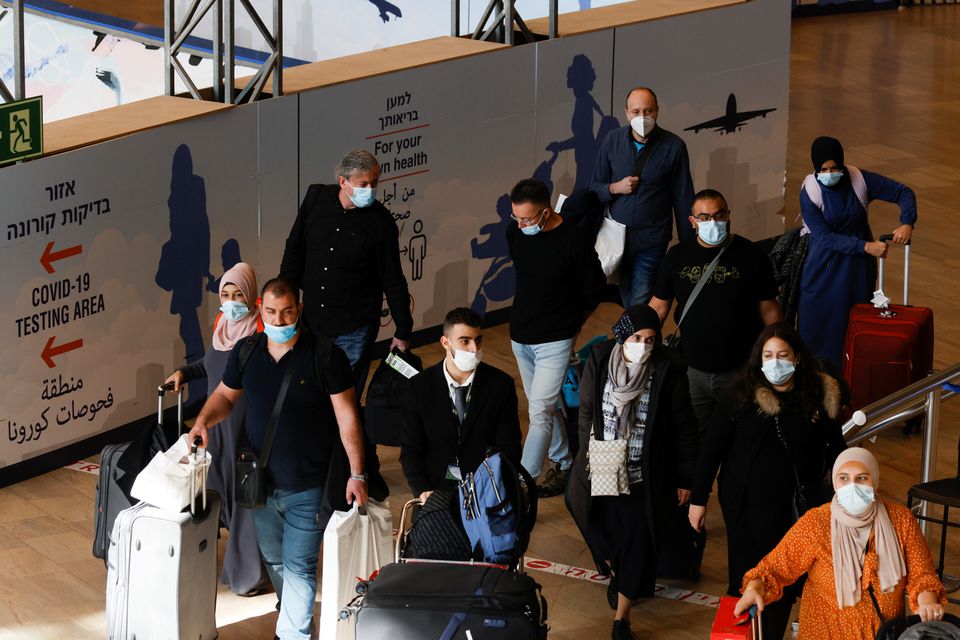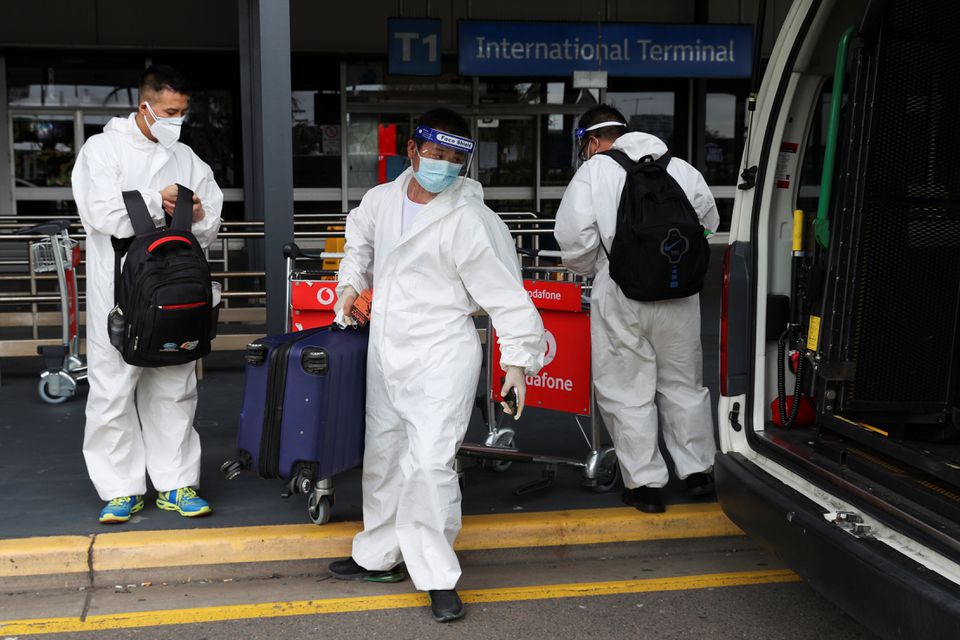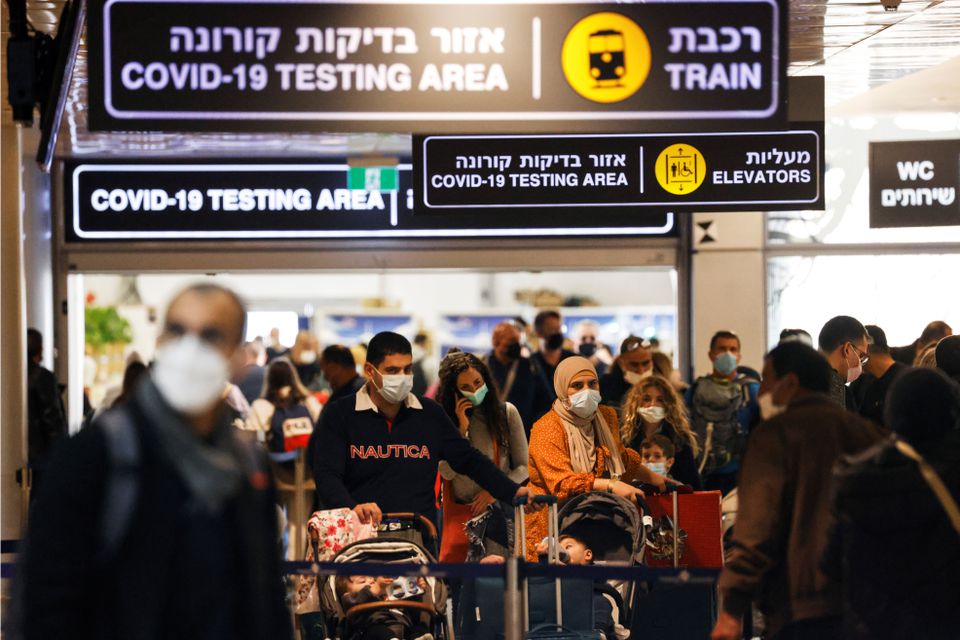Japan said on Monday it would close its borders to foreigners, as the world's third-largest economy joined Israel in taking the toughest measures against the Omicron variant of coronavirus, which the WHO said carried a "very high" global risk of surges.
Markets regained some composure as investors awaited further details of the variant, after having sunk last week on fears that it could bring fresh curbs, threatening a nascent economic revival from a two-year pandemic.
Potentially more contagious than prior variants, Omicron, first identified in southern Africa, has been found in Australia, Belgium, Botswana, Britain, Canada, Denmark, France, Germany, Hong Kong, Israel, Italy, the Netherlands and Scotland.
The Omicron variant is likely to spread internationally, bringing "severe consequences" in some areas, the World Health Organisation (WHO) advised its 194 member nations.
"The overall global risk related to the new variant of concern Omicron is assessed as very high," said the world health body, which has warned that understanding the variant's level of severity could take time running into weeks.
As a precaution to avert a worst-case scenario, Japan will close its borders to foreigners from Tuesday, Prime Minister Fumio Kishida said, adding that he was ready to face criticism for being too cautious.
"These are temporary, exceptional measures that we are taking for safety's sake, until there is clearer information about the Omicron variant," Kishida told reporters.
He did not say how long the restriction would stay. Japanese returning from specified nations would face quarantine, he added.
|
|
| A passenger is seen behind a notice about the coronavirus disease (COVID-19) measurements at an arrival hall of Haneda airport's international terminal, amid the coronavirus disease (COVID-19) outbreak, in Tokyo, Japan, November 29, 2021. Photo: Reuters |
While Japan has not uncovered any Omicron infections, Health Minister Shigeyuki Goto said it was doing tests to determine if the variant had infected a traveller from Namibia who tested positive for the virus.
Israel, where the ban took effect from midnight on Sunday, has also vowed to use counter-terrorism phone-tracking technology to combat the new variant.
|
|
| Travellers walk towards the coronavirus disease (COVID-19) pandemic testing area at Ben Gurion International Airport as Israel imposes new restrictions near Tel Aviv, Israel November 28, 2021. Photo: Reuters |
Australia said it would review plans to re-open borders to skilled migrants and students from Dec. 1, after reporting its first Omicron cases.
A national security panel will meet later in the day, Prime Minister Scott Morrison said, but added it was a "bit too early" to reinstate two-week hotel quarantine for foreign travellers.
"So we just take this one step at a time, get the best information, make calm, sensible decisions," Morrison told broadcaster Nine News.
Symptoms of Omicron are so far mild and could be treated at home, a South African doctor, one of the first to suspect a different variant, has said.
|
|
| Travellers in personal protective equipment load luggage into a taxi outside the international terminal at Sydney Airport, as countries react to the new coronavirus Omicron variant amid the coronavirus disease (COVID-19) pandemic, in Sydney, Australia, November 29, 2021. Photo: Reuters |
Travel curbs
The WHO urged members to speed vaccination of high-priority groups and ensure efforts to keep up essential health services, advising a risk-based approach to adjusting global travel curbs.
"Omicron has an unprecedented number of spike mutations," it said, adding, "COVID-19 cases and infections are expected in vaccinated persons, albeit in a small and predictable proportion." Morocco has said it will ban all inbound international passenger flights for two weeks from Nov. 29.
Singapore has deferred the start of vaccinated travel lanes with some Middle Eastern countries, such as Qatar, Saudi Arabia and the United Arab Emirates, seen as transit hubs for travel from affected countries, its health ministry said.
The wealthy southeast Asian city-state and neighbouring Malaysia re-opened their land border, one of the world's busiest, to vaccinated travellers, after a shutdown of nearly two years.
India has ordered COVID-19 testing at airports from Wednesday for all arrivals from 'at-risk' countries.
Britain, which has said it would call an urgent meeting of G7 health ministers on Monday, is set to unveil new guidance on extending the rollout of COVID-19 booster shots in light of the rapid rise in Omicron infections.
Scotland has identified six Omicron cases, it said on Monday, adding that public health officials were working to establish the circumstances.
In the United States, President Joe Biden will provide fresh details of the variant and the U.S. response on Monday, the White House said.
South Africa has denounced the travel restrictions as unfair and potentially harmful to the economy, saying it was being punished for its scientific ability to identify variants early.
|
|
| Travellers exit the coronavirus disease (COVID-19) pandemic testing area at Ben Gurion International Airport as Israel imposes new restrictions near Tel Aviv, Israel November 28, 2021. Photo: Reuters |



